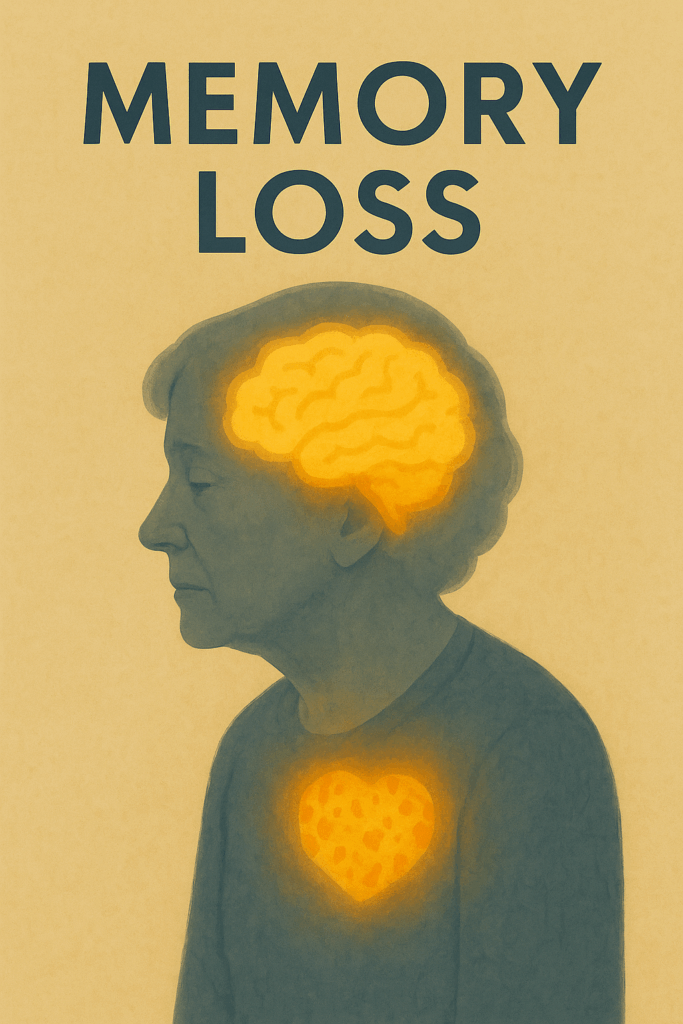Memory Loss: The Body’s Call for Clarity and Renewal
Memory loss is often seen as a mysterious and frightening decline of the mind, yet from a Natural Hygiene perspective, it reflects the body’s and brain’s need for purification, rest, and proper nourishment. The brain, like every other organ, depends on a clean bloodstream and steady nerve energy to function clearly. When the internal environment becomes burdened with waste or the nervous system is depleted, the brain’s ability to register and recall information naturally weakens. This is not degeneration but a protective slowing — an invitation to restore clarity through balance and renewal.
The brain is one of the body’s most delicate organs, requiring continuous oxygen and glucose to operate efficiently. When circulation is sluggish or blood quality poor, brain cells receive less fuel and oxygen. The result is fogginess, confusion, and forgetfulness. Common causes include fatigue, dehydration, stress, stimulants, alcohol, and poor diet — all of which divert energy away from higher brain functions toward survival-level repair. When the body is overloaded, memory simply takes a back seat until internal harmony returns.
Toxins from processed foods, animal products, or medication can further congest the bloodstream, interfering with the brain’s electrical communication. These substances cloud the nerve pathways and dull responsiveness. By contrast, a diet of fresh fruits, leafy greens, and natural water restores fluidity and vitality. Fruits, especially those rich in natural sugars such as grapes, apples, and berries, supply the perfect glucose for brain energy without causing imbalance. Hydration and oxygenation — through pure water, deep breathing, and outdoor activity — are the foundations of mental clarity.
Rest is equally important. The brain requires deep sleep to cleanse itself of metabolic waste and reorganise memory. Chronic sleep deprivation or overstimulation through screens and mental strain keeps the nervous system in a constant state of alert. Over time, this hyperactivity leads to exhaustion and forgetfulness. Healing begins with stillness — moments of quiet, meditation, or simply slowing the pace of life so the nervous system can recharge.
Emotional and psychological factors can also influence memory. Suppressed emotions, grief, or stress occupy mental space and drain attention from the present. The mind becomes cluttered with unresolved material, leaving less capacity for new impressions. Emotional release and acceptance free mental energy and allow the brain to function with renewed sharpness. Letting go — both emotionally and physically — is central to regaining memory and presence.
Ageing itself is not the cause of memory loss; rather, it is the accumulation of years of improper living. Many older people maintain excellent mental clarity because they continue to eat lightly, rest well, stay active, and live with joy and curiosity. The brain thrives on stimulation balanced with rest. Learning new skills, engaging in meaningful conversation, and spending time in nature all keep the neural pathways vibrant.
Fasting or short periods of fruit cleansing can also revitalise mental function. When digestion quiets, blood is purified and oxygen flow improves. Many report clearer thinking, sharper memory, and greater calm after only a few days of eating simply or fasting under guidance.
Memory loss, then, is not a disease to be fought but a message to slow down, cleanse, and nourish the mind-body system. When toxins are released, rest is restored, and the spirit reconnects to the present moment, the fog lifts naturally. The body and brain always strive toward clarity — we simply need to give them the conditions to remember how.

